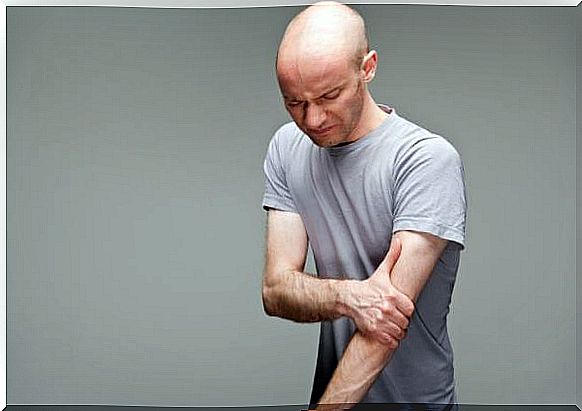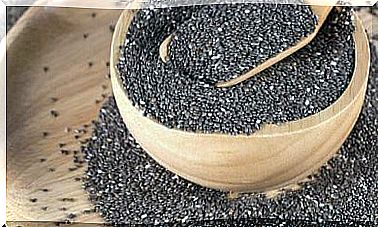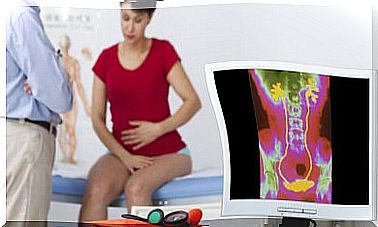Causes Of Biceps Tendinopathy?
The main cause of biceps tendinopathy is overuse of the long head of the biceps. Mainly, it is due to the repetitive and frequent movement of placing the arms above the shoulders.

Biceps tendinopathy is a condition that affects the tendon of this muscle. Usually it does not lead to serious consequences. Most commonly, it is detected when a person experiences pain just by moving the arm.
There are many factors that favor the development of biceps tendinopathy. Among them are sports activity, work activity that involves habitual use of arm strength and age. Although rare, this problem can lead to tendon rupture if not addressed properly.
Biceps tendinopathy is estimated to be one of the leading causes of shoulder pain. It begins with inflammation that causes pain, but over time can lead to chronic damage, in which there is partial or complete rupture of the tendon.
The biceps and its tendons

The biceps is the muscle that is located in the upper arm. The distal tendon attaches the lower para of the biceps to the elbow. The proximal tendons, meanwhile, attach this muscle to the shoulder.
Tendons are connective tissues, endowed with great resistance. There are two proximal tendons: the short head and the long head. These join the shoulder blade at various points. They help support the upper part of the arm in the shoulder socket. In the same way, they facilitate its movement.
The biceps is involved in various movements. It participates in the supination of the forearm, that is, in the movement through which the palms are turned upwards. Also in the flexion of the elbow. Likewise, it helps stabilize the shoulder joint.
What is biceps tendinopathy
The pathology of the biceps encompasses a wide set of injuries, which can arise both in the shoulder, as in its insertion in the elbow. Biceps tendinopathy occurs when there is inflammation in the long head of the proximal tendons.
The most common is that biceps tendinopathy is associated with some pathology of the shoulder. The most common is rotator cuff injury. The latter corresponds to the set of muscles and tendons that cover the head of the humerus. It allows raising and rotating the arm, in addition to giving it stability.
The condition causes severe pain in the front of the shoulder. Generally, this appears when the arm is raised higher than the shoulder. However, this condition makes it very painful to carry out daily activities, such as putting the arm in a shirt, throwing a ball, sleeping on the affected area, etc.
Causes of the disease
The most common cause of biceps tendinopathy is overuse, either due to work or sports activities, or because there is a concomitant condition. The most common are inflammatory diseases, rotator cuff injuries, sequelae of previous injuries, trauma, subacromial shock, or compromise syndrome.
Sometimes the head of the humerus is abnormally raised and displaced forward. This causes secondary damage to the long head of the biceps. There is then a conflict between the long head of the biceps and the acromion. This creates a condition known as subacromial impingement or involvement, which causes biceps tendinopathy.
All of the above gives rise to inflammation, edema or small tears. If the problem progresses, chronic degeneration occurs. This leads to disruption of the normal collagen pattern in the tendon. Eventually, it could lead to a partial or complete breakdown of it.
Prevention of biceps tendinopathy
The main way to prevent biceps tendinopathy is to avoid all activities that involve placing your arms above your head too frequently. In sports activities such as baseball and tennis, these types of movements are very common.
When it is not possible to refrain from performing these movements, it is appropriate to perform exercises to strengthen the muscles of the shoulder and upper arm. If the shoulder muscles are well developed, the arm will not lose stability and therefore will be less prone to injury.
Another preventive measure is to perform these types of movements with proper technique. Weird or awkward postures put excessive stress on the shoulder, which ends up triggering problems like biceps tendinopathy. If pain appears, the activity should be suspended until a medical check-up.









